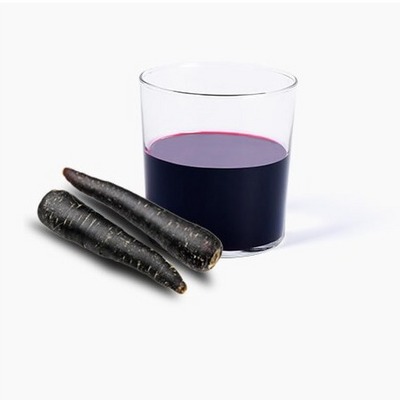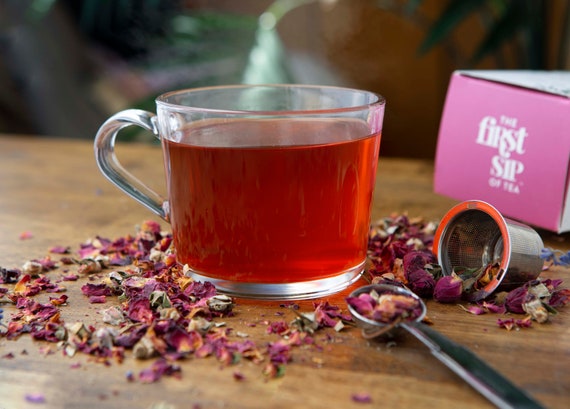How to Use Black Carrot Extract in Functional Beverages?
The demand for natural ingredients in the food and beverage industry is at an all-time high, with consumers actively seeking healthier alternatives to artificial additives. One such ingredient that is gaining popularity is black carrot extract. Known for its rich anthocyanin content, black carrot extract is a natural colorant and functional ingredient with multiple health benefits. In this blog, we’ll explore how black carrot extract enhances functional beverages, its key benefits, and its various applications.
What is Black Carrot Extract?
Black carrot extract is derived from Daucus carota subsp. sativus, a dark purple to black variety of carrots. Its deep color comes from anthocyanins, powerful antioxidants that contribute to numerous health benefits. Traditionally used as a natural dye in food products, black carrot extract is now gaining attention for its role in functional beverages.

Nutritional Profile of Black Carrot Extract
| Nutrient | Amount per 100g |
|---|---|
| Energy | 43 kcal |
| Carbohydrates | 9.6 g |
| Fiber | 2.8 g |
| Sugars | 4.7 g |
| Protein | 1.1 g |
| Fat | 0.2 g |
| Vitamin C | 5.9 mg |
| Vitamin A | 835 IU |
| Anthocyanins | 200-400 mg |
| Potassium | 320 mg |

Health Benefits of Black Carrot Extract in Functional Beverages
1. Rich Source of Antioxidants
-
Black carrot extract is packed with anthocyanins, which help neutralize free radicals and reduce oxidative stress.
-
Consuming antioxidant-rich beverages can contribute to overall health and may lower the risk of chronic diseases such as cardiovascular conditions and neurodegenerative disorders.
2. Supports Cardiovascular Health
-
Studies suggest that anthocyanins in black carrot extract can help improve blood circulation and reduce inflammation.
-
Regular consumption of anthocyanin-rich beverages may help regulate blood pressure and improve cholesterol levels.
3. Promotes Digestive Health
-
Black carrot extract contains prebiotic properties, which support gut-friendly bacteria and improve digestive function.
-
It is often used in fermented drinks like kombucha to enhance gut health.
4. Anti-Inflammatory and Immune-Boosting Properties
-
The anthocyanins in black carrot extract combat inflammation and may help reduce symptoms of chronic inflammatory diseases.
-
Its natural compounds can boost immune function, making it a great addition to wellness drinks.
5. Blood Sugar Regulation
-
Some studies suggest that black carrot extract may help stabilize blood sugar levels, making it suitable for diabetic-friendly beverages.
-
Functional beverages containing black carrot extract can provide a natural, low-glycemic option for those monitoring their sugar intake.

Applications of Black Carrot Extract in Functional Beverages
Black carrot extract is a versatile ingredient that enhances beverages in both aesthetic appeal and nutritional value. Here are some of its most common applications:
1. Smoothies and Juices
-
Black carrot extract can be blended into fruit and vegetable juices to enhance color and antioxidant content.
-
It pairs well with berries, citrus fruits, and tropical flavors.

2. Sports and Energy Drinks
-
Used as a natural coloring agent while adding health benefits.
-
Helps in hydration and recovery by supporting cardiovascular function and reducing muscle inflammation.

3. Fermented Beverages (Kombucha & Probiotic Drinks)
-
The prebiotic properties of black carrot extract help promote gut health.
-
Adds a natural purple hue to fermented drinks without artificial additives.

4. Herbal Teas and Infusions
-
Black carrot extract enhances the color and nutritional profile of herbal teas.
-
Works well with hibiscus, green tea, chamomile, and other herbal blends.

5. Functional Carbonated Drinks
-
Can be added to flavored sparkling waters and low-sugar sodas.
-
Provides aesthetic appeal without the need for synthetic food dyes.
6. Alcoholic Beverages and Craft Cocktails
-
Used in flavored vodkas, wines, and health-focused cocktails.
-
Enhances visual appeal while providing subtle fruity undertones.

Recommended Dosage for Black Carrot Extract in Beverages
| Beverage Type | Recommended Dosage (per liter) |
| Smoothies & Juices | 0.2% - 0.5% |
| Sports & Energy Drinks | 0.1% - 0.3% |
| Fermented Beverages | 0.3% - 0.6% |
| Herbal Teas & Infusions | 0.1% - 0.4% |
| Functional Carbonated Drinks | 0.2% - 0.5% |
| Alcoholic Beverages | 0.1% - 0.3% |
How to Use Black Carrot Extract in Functional Beverages
-
pH Sensitivity: In acidic drinks (like citrus-based beverages), it appears reddish, while in neutral beverages, it gives a deep purple hue.
-
Dosage Recommendations: Generally used at 0.1% to 0.5% of the total beverage weight.
-
Storage and Stability: Store in cool, dark conditions to maintain color vibrancy and antioxidant content.

Conclusion
Black carrot extract is a game-changer in the functional beverage industry. It offers natural coloring, powerful antioxidants, and a host of health benefits while catering to the clean-label movement. Whether in smoothies, kombucha, or sports drinks, black carrot extract is an excellent addition to beverages that prioritize both aesthetic appeal and wellness.
As the demand for health-focused, natural ingredients continues to grow, black carrot extract is set to become a staple in innovative beverage formulations.
References
-
Khoo, H. E., et al. (2017). "Anthocyanins and their effects on health." Critical Reviews in Food Science and Nutrition, 57(8), 1684-1711.
-
García-Alonso, M., et al. (2009). "Antioxidant and anti-inflammatory properties of anthocyanin-rich extracts from black carrot." Food Chemistry, 116(3), 691-698.
-
Tsuda, T. (2012). "Dietary anthocyanin-rich plants: Bioavailability and health-promoting effects." Journal of Biomedicine and Biotechnology, 2012, 1-9.
-
Wu, X., & Prior, R. L. (2005). "Systematic screening for anthocyanins by HPLC-MS in fruits and vegetables." Journal of Agricultural and Food Chemistry, 53(7), 2589-2599.

